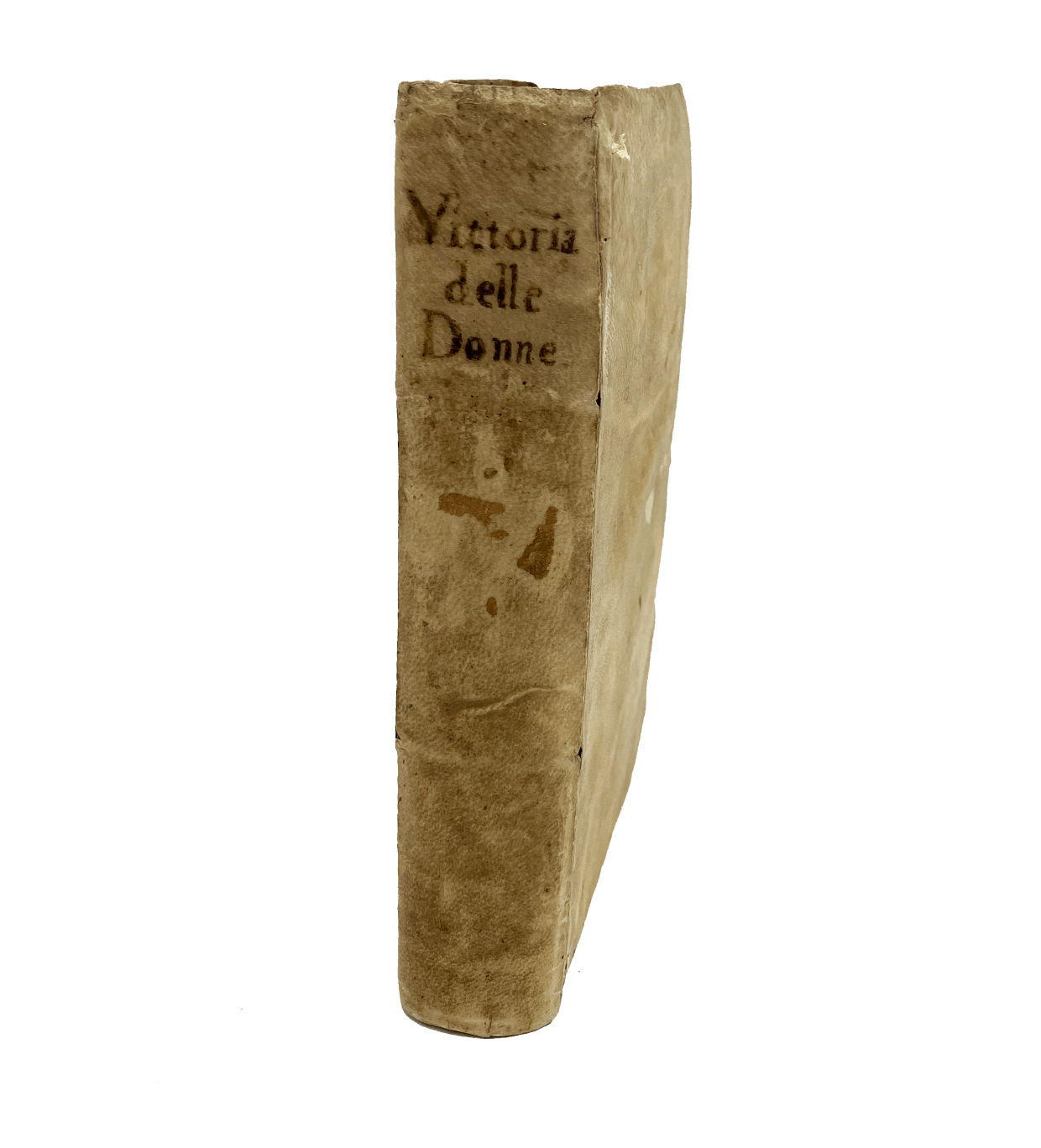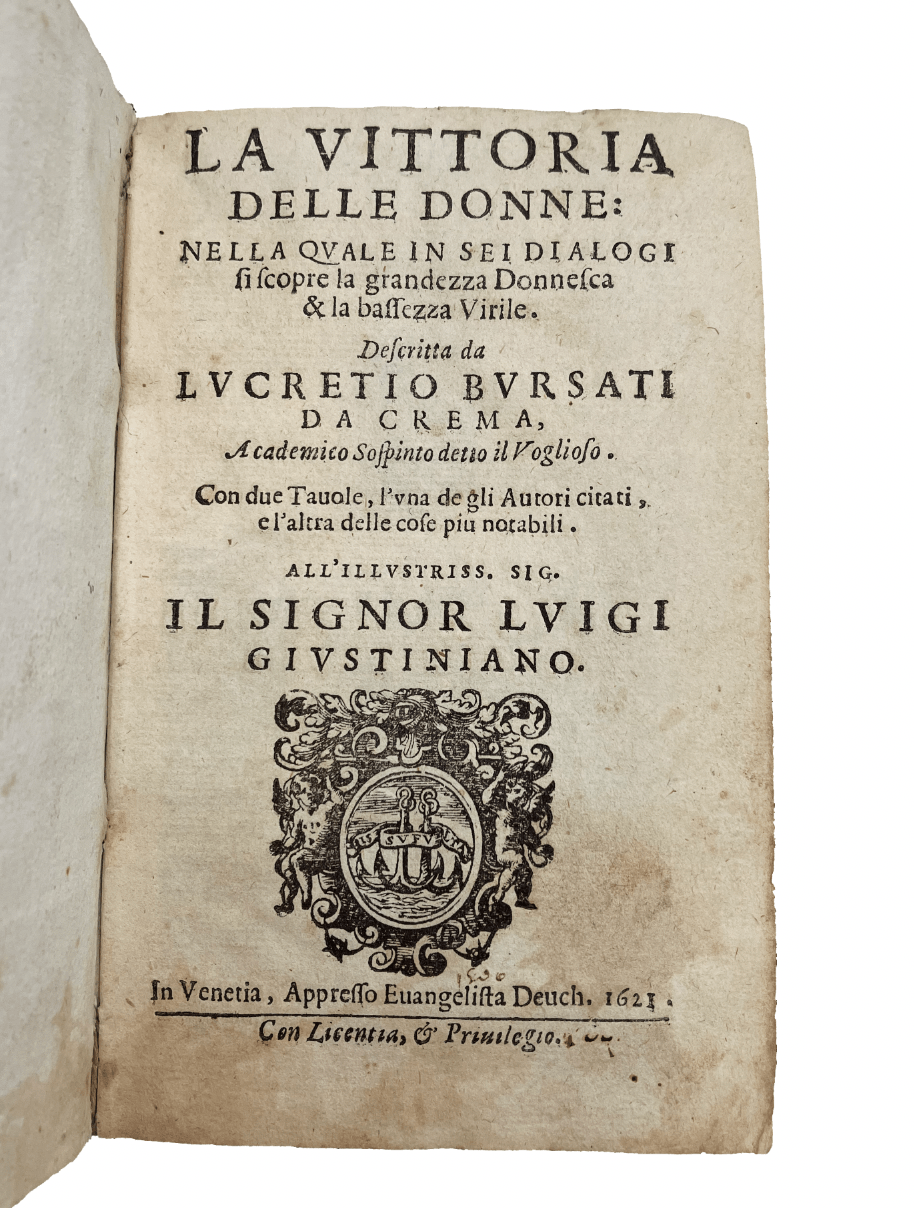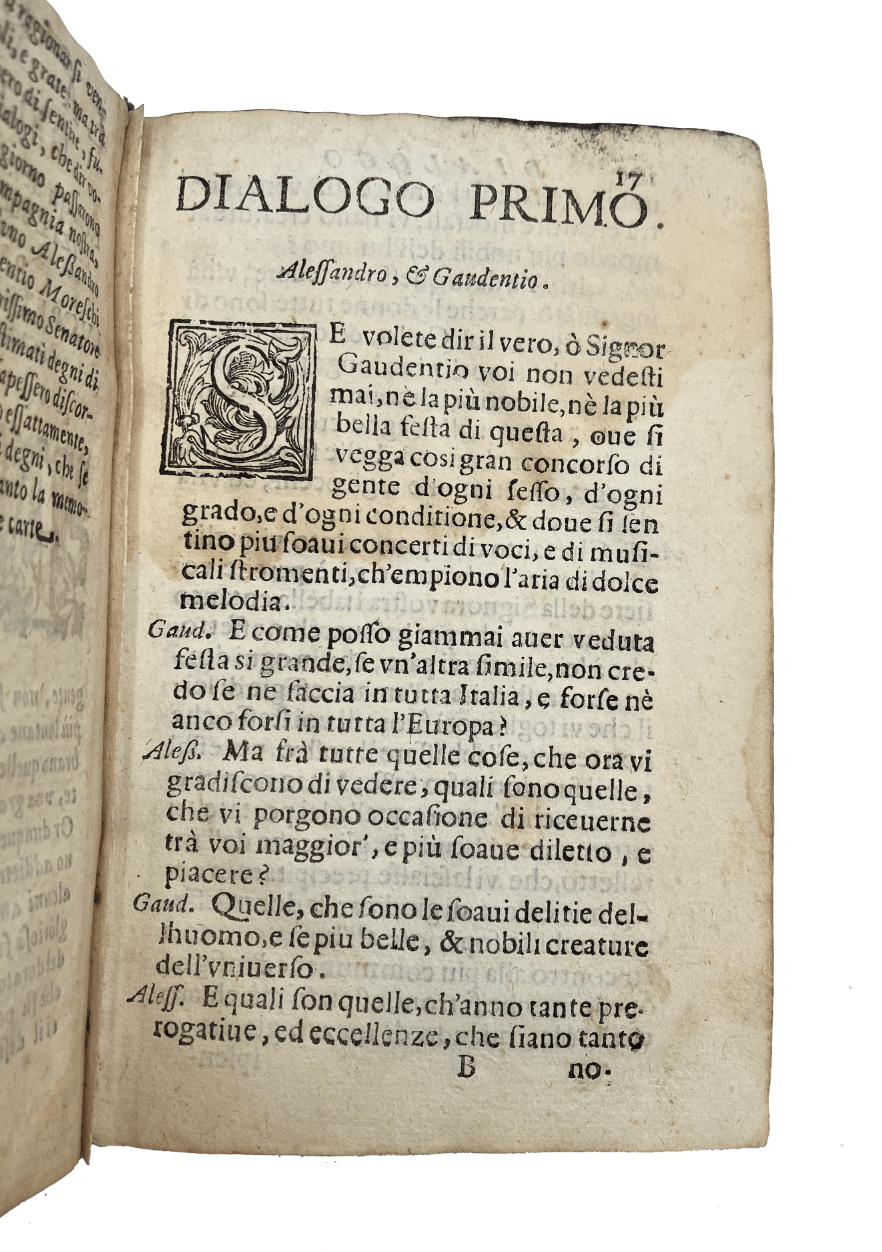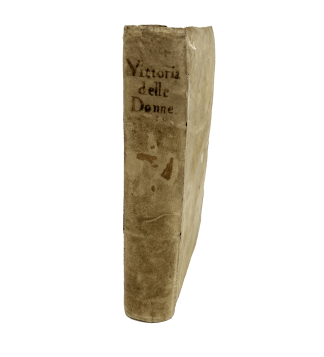BURSATI, Lucrezio
IN PRAISE OF WOMEN
La vittoria delle donne.
Venice, appresso Evangelista Deuch, 1621.£2,750.00
FIRST EDITION. 8vo. pp. (xvi), 17-369, (xxi). Roman letter, some italic. Woodcut printer’s device to t-p, woodcut arms to dedication. Woodcut initials. Contemporary limp vellum on two supports, contemporary ms. title to spine and to edges at tail, inscription to edges at head illegible. Some ms. marking to t-p, contemporary ownership inscription to front pastedown, ‘Ex libris Jacobi Saeck.’ Foot of t-p a bit soiled, waterstaining to upper half of pages, generally very light but causing paper crinkling, small wormtrack to final ll. of table, affecting a few letters at end, a perfectly acceptable copy.
Rare first edition of this work of six dialogues on ‘the greatness of women and the baseness of men’ by Lucrezio Bursati (dates unknown), an Augustinian friar and member of the Accademia dei Sospinti in Crema. The early seventeenth-century dispute known as the ‘querelle des femmes’ saw women authors aiming to defend their right to publish and participate in the male sphere, for which they earned the opprobrium of certain authors: the ‘long-simmering debate on women’s status and moral character was revived at the end of the Cinquecento in Italy with a series of local debates in the Veneto before ‘going national’ in 1599 following the publication in Venice of Giuseppe Passi’s I donneschi difetti (‘the defects of women’)’ (Virginia Cox, ‘The Prodigious Muse: Women’s Writing in Counter-Reformation Italy’, pp. 28-29), Bursati was one of a group of ecclesiastical writers who wrote in favour of women, including priests, a bishop, a canon and Bursati, a friar: ‘this represents a genuine novelty in the period, in that the authors of pro-feminist querelle texts had, to this point, been almost exclusively laymen’ (Cox, p. 29). Bursati begins by drawing on a stock figure from the commedia dell’arte, the modest and chaste Isabella, who is the innamorata of Gaudentio, one of the interlocutors (as his name suggests, he will be praising the virtues of women throughout the six dialogues). Bursati also draws on numerous ancient sources, of which a table is provided at the end.
OCLC notes copies in North America at Columbia, Getty Institute and Yale only. Not in Gamba; BM STC It., p. 164.




